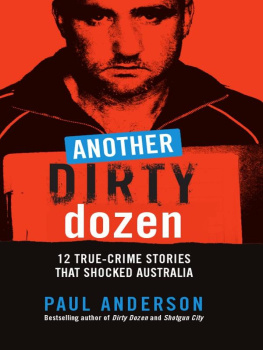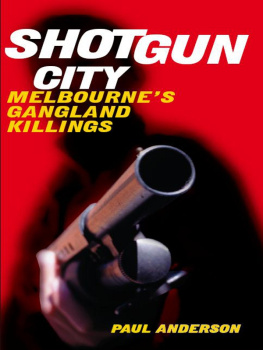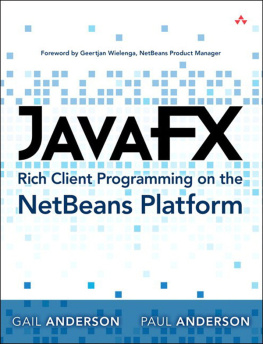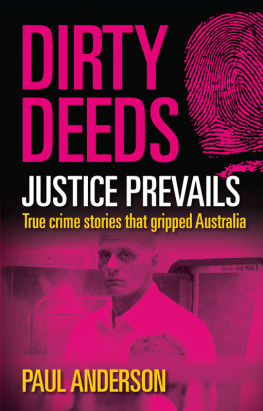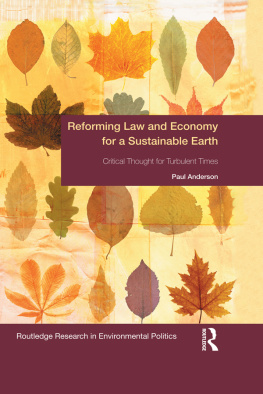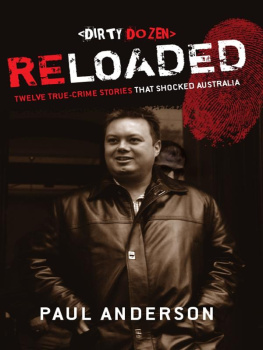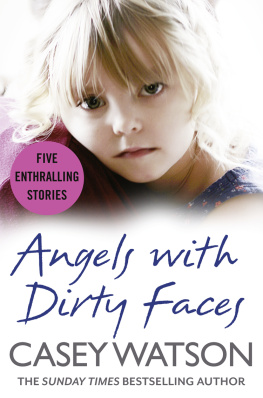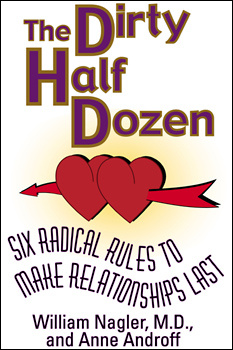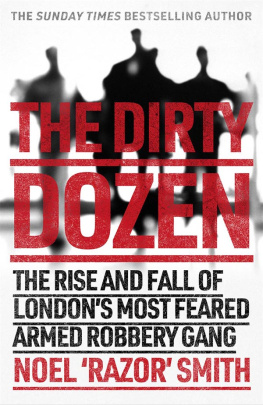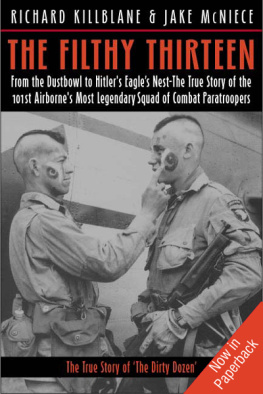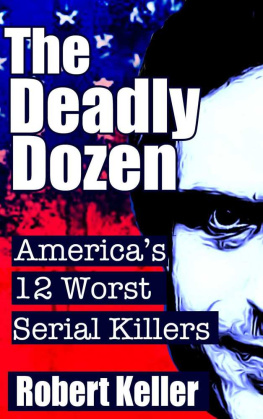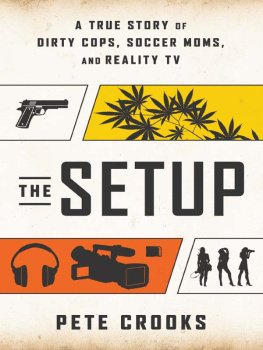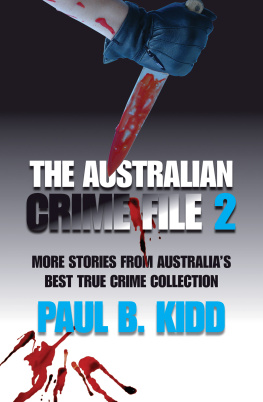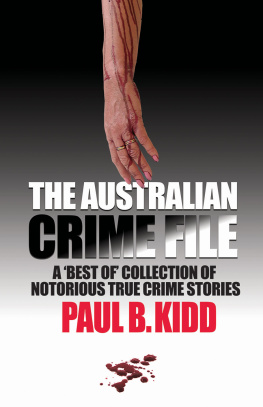Paul Anderson - Another Dirty Dozen
Here you can read online Paul Anderson - Another Dirty Dozen full text of the book (entire story) in english for free. Download pdf and epub, get meaning, cover and reviews about this ebook. year: 2005, publisher: Hardie Grant Books, genre: Detective and thriller. Description of the work, (preface) as well as reviews are available. Best literature library LitArk.com created for fans of good reading and offers a wide selection of genres:
Romance novel
Science fiction
Adventure
Detective
Science
History
Home and family
Prose
Art
Politics
Computer
Non-fiction
Religion
Business
Children
Humor
Choose a favorite category and find really read worthwhile books. Enjoy immersion in the world of imagination, feel the emotions of the characters or learn something new for yourself, make an fascinating discovery.
- Book:Another Dirty Dozen
- Author:
- Publisher:Hardie Grant Books
- Genre:
- Year:2005
- Rating:5 / 5
- Favourites:Add to favourites
- Your mark:
- 100
- 1
- 2
- 3
- 4
- 5
Another Dirty Dozen: summary, description and annotation
We offer to read an annotation, description, summary or preface (depends on what the author of the book "Another Dirty Dozen" wrote himself). If you haven't found the necessary information about the book — write in the comments, we will try to find it.
Another Dirty Dozen is a collection of true-crime stories that takes you inside some of the most intriguing and violent cases from across the country.
Another Dirty Dozen — read online for free the complete book (whole text) full work
Below is the text of the book, divided by pages. System saving the place of the last page read, allows you to conveniently read the book "Another Dirty Dozen" online for free, without having to search again every time where you left off. Put a bookmark, and you can go to the page where you finished reading at any time.
Font size:
Interval:
Bookmark:
Paul Anderson has been a crime reporter for the Herald Sun since 1994, and is currently the papers longest serving police roundsman. One of the team that won a Walkley Award in 1995 for a special liftout on the murder of Sheree Beasley, Paul was also head of a team of reporters that won the 2004 Quill Award Best Deadline Report for a series of stories on the murder of crime patriarch Lewis Moran.
Paul is the author of Dirty Dozen: 12 True-CrimeStories that Shocked Australia and Shotgun City:Melbournes Gangland Killings.
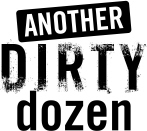
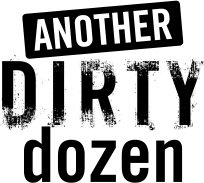
12 TRUE-CRIME STORIES
THAT SHOCKED AUSTRALIA
PAUL ANDERSON

Published in 2005 by
Hardie Grant Books
85 High Street
Prahran, Victoria 3181, Australia
www.hardiegrant.com.au
All rights reserved. No part of this publication may be reproduced, stored in a retrieval system or transmitted in any form by any means, electronic, mechanical, photocopying, recording or otherwise, without the prior written permission of the publishers and copyright holders.
The moral right of the author has been asserted.
Copyright text Paul Anderson 2005
National Library of Australia Cataloguing-in-Publication Data:
Anderson, Paul, 1971.
Another dirty dozen: 12 true-crime stories that shocked Australia.
ISBN 1 74066 346 2.
1. Crime Australia Case studies. 2. Criminal investigation
Australia Case studies. I. Title.
364.994
Cover and text design by PCD
Typeset by Pauline Haas
Printed and bound in Australia by Griffin Press
Photograph section credits: courtesy of The Herald & Weekly Times
Photographic Collection; courtesy of the Riverine Herald.
Every effort has been made to incorporate correct information. The publishersregret any errors and omissions, and invite readers to contribute up-to-date oradditional relevant information to Hardie Grant Books.
10 9 8 7 6 5 4 3 2
Acknowledgements
Thanks again to my sources on both sides of the law. They know who they are.
Gratitude to my fellow Herald Sun police roundsmen Shelley Hodgson, Mark Buttler, Anthony Dowsley, Holly Ife and Holly Lloyd-McDonald; and chief court reporter Elissa Hunt.
Thanks also to commissioning editor Mary Small and editor Rachel Pitts at Hardie Grant; editor Sally Moss; Supreme Court liaison Prue Innes; Supreme Court registrar Leigh Bryant; Darryl Annett at the Office of the Director of Public Prosecutions; Amber Clinton of the Victoria Police Freedom of Information Unit; High Court deputy registrar Rosemary Musolino; and staff of the Victorian Government Reporting Service. Thanks also to Nic Pullen at Holden Redlich for his legal advice.
Contents
A man murders his wife and daughter ... and cries
crocodile tears for the cameras
[Sharpes] callousness in taking his child to the store where
he purchased the implement which he intended to later use
to kill her needs only to be stated to be fully appreciated.
JOHN MYLES SHARPE was lying in bed staring up into the consuming darkness. His mind was brooding as wife Anna, pregnant for a second time by fluke, lay next to him dreaming of a marriage full of chivalry, respect, intimacy and affection. Anna had not been terribly lucky in life but at least she could enjoy a Prince Charming in her dreams. John Sharpe could not sleep. The selfish and indifferent man had been consumed by darkness for many days now. Warped and evil emotions were running through whatever tiny heart he had.
Sharpe, a frail, stooped individual not unlike the cold and clammy Charles Dickens character Uriah Heep,* felt threatened and intimidated. He saw Anna a vivacious and fun-loving woman whom he would later describe as demanding as a domineering presence in his life. So pathetic was his constitution that he even felt undermined by his little daughter Gracie. John Sharpe was truly a deplorable wretch, and as he lay there looking up into the darkness, the darkness looked back into him. It was time to end his personal torment. The weapon hed bought to kill his wife a spear gun was downstairs in the garage. He crept out of bed and snuck down to fetch it as Anna remained in her dreams.
Anna Marie Kemp was born in Dunedin, New Zealand, on 27 September 1962, the sole daughter of Polish immigrant Lilia Gebler and her husband Douglas Kemp. Anna had an older brother named Gerald. The siblings were said to have lived like twins before welcoming a younger brother, Joseph, into the fold.
She was very thoughtful and deep and she got frustrated because the world wasnt perfect like she wanted it, Gerald told Herald Sun reporter Shelley Hodgson. Annas mother told Hodgson: They were the most gorgeous children. It was a pleasure to have them.
The idyllic family life was not destined to last, and Lilia and Douglas separated in 1974 when Anna was twelve. Douglas later moved to Australia, and Gerald took his younger sister and brother to the airport to see their father off. That was the last time Anna would ever see her father a man she adored and loved. She was a daddys girl, Gerald says.
Anna blossomed into an attractive and outgoing young woman after acing secondary school. Her subjects were English, French, German, a science and a maths. She was also good at sport. According to Gerald: She could have gone to [university] and become a lawyer.
But Anna was undecided on where her future lay. Early jobs saw her working in an advertising role at a local newspaper and as a social welfare officer with the Salvation Army. All the while she had dreams of moving to Australia, having visited Sydney on a holiday as many New Zealanders do. In 1989, while in her late twenties, she made the move to Melbourne with close friend Jenny Young. The girlfriends moved in with another friend, Nadine Stiven, in the southern seaside suburb of Mentone.
Anna liked to have fun and Melbourne provided that fun, Gerald told Hodgson. She loved to go out to those little market places. She loved going into town occasionally and having coffee with friends she loved the caf scene.
Anna gained employment as a teller with the Commonwealth Bank in Mentone. Lilia, meanwhile, took trips to visit her daughter. Anna and her mother were close. Lilia remembers Anna as generous and kind-hearted. She said Anna sponsored two children in Africa until she left work and John Sharpe made her give them up.
Anna wanted mum to come and live in Melbourne, Gerald says. She wanted to relocate our family to Melbourne. I said, I dont want you to take mum there cos I need mum too.
Gerald told Hodgson: Anna was a really positive person with a beautiful heart, always looking for a good laugh. She just thought she was average, like everyone else. She didnt think she was special. She was an intelligent, together kind of person.
Anna certainly did not suffer from delusions of grandeur. She was down to earth and content to live a simple, happy life. But an eerie premonition about her future would almost prove true, at least in part. It was a premonition she shared with her mother.
She had an idea that if something happened to her no one would find her, or no one would care, Lilia would say.
While working at the Commonwealth Bank, Anna met John Sharpe who worked as a teller at another Commonwealth branch. Sharpe was born on 28 February 1967 in Mornington, about eighty kilometres south of Melbourne. He was the fifth of six siblings. He completed Year 11 at Mornington High School but failed his HSC. The next year, in 1985, he started work at the then State Bank of Victoria, and he remained an employee when it was taken over to become the Commonwealth Bank.
Next pageFont size:
Interval:
Bookmark:
Similar books «Another Dirty Dozen»
Look at similar books to Another Dirty Dozen. We have selected literature similar in name and meaning in the hope of providing readers with more options to find new, interesting, not yet read works.
Discussion, reviews of the book Another Dirty Dozen and just readers' own opinions. Leave your comments, write what you think about the work, its meaning or the main characters. Specify what exactly you liked and what you didn't like, and why you think so.

